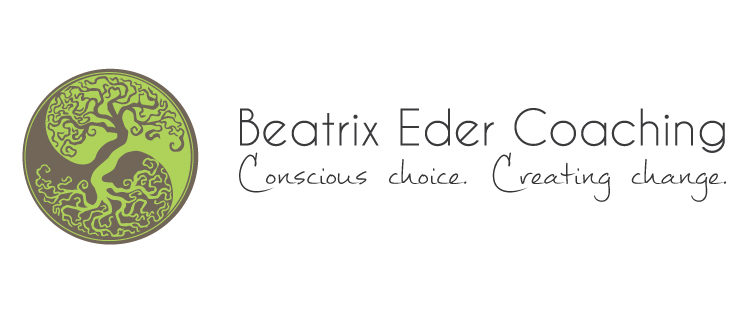
Working parents, an asset for your organization
There is no question that parenting is among the most meaningful and wonderful jobs in the world. Having the honor and the opportunity to raise little human beings into the change we want to see in the world is both tremendously enriching and daunting. And so, parenting also presents us with frequent challenges that we never imagined before facing them.
Whether it is coordinating the household and family life, mediating sibling rivalry, deciding in moral dilemmas or planning for the future, parenting engages on a physical, mental and emotional level.
Transferable skills
Similar to business, parenting is full of complexity and change and just like in corporate leadership, parents must develop strategies to be effective. By doing so they strengthen their competency in several soft skills: communication, problem-solving, decision-making and time management are just a few of these skills that parents practice on a daily basis.
These skills are of utmost importance in life when we interact with others and not only do they improve our relationships; they also forge our character. In the corporate world, employees who have strong soft skills make the work environment more collaborative and productive.
Many parents and organizations are unaware of the remarkable strengthening of these skills during a period of parental leave and don’t see them as an advantage for their career or the organizational success.
When returning to work, working parents –and mothers in particular- face a lot of bias of being “distracted”, “less committed to work” or “less ambitious” for example.
An asset for the organization
And yet, companies draw big advantages from facilitating the successful reintegration of parents in general and mothers in particular in the workforce:
- Reduction of employee turnover costs
- Retention and increases representation of women in senior positions
- Protection of people assets
- Maintaining a healthy and balanced talent pipeline
- Increase of employees’ motivation, performance and contribution to the business
- Enhancing their reputation as an employer of choice.
Hence, more and more organizations recognize the importance to support working parents in order not to lose them. The most progressive organizations take a holistic approach and go beyond simply offering paid parental leave. Flexible working hours, home-office and childcare services at the office are just a few among the perks that companies offer to working parents.
Parental Transitions Coaching
Supporting working parents through coaching is another way to help them and facilitate a smooth transition for the individual, the line manager and the team before, during and after the parental leave. Parental Transitions Coaching recognizes that human capital is pivotal for any organization and helps keep careers on track and teams working well together.
Four distinct phases
This service is provided within a framework of four distinct phases within which the individual themes of the client are embedded.
Phase 1, before the parental leave, is usually the least problematic, presuming that there are no specific challenges such as health challenges with the woman and the baby, challenges at work regarding ongoing projects, key accounts, reorganization etc.
Phase 2, during parental leave, can be tiring for the parent, independently whether it is a first or subsequent child. That’s when it gets “real” and parents are often in a love-bubble with their baby and they are also exhausted from lack of sleep and proper time to care for themselves.
Phase 3, at return to work, is often stressful: parents need to organize the logistics of childcare; they often experience mixed feelings about going back to work: feeling guilty to leave a baby back home and also enthusiastic to return to work. Often they also feel surprised and alienated because things might have changed at work during their leave: new people, new policies, new projects can feel like a “cultural shock”, especially because the client has changed also from being “just” a professional to being a professional AND a parent.
Phase 4, after return to work, is commonly a blind spot for both the employer and the employee: parents and organizations assume that the parent is back in the routine and things go smoothly, the transition has been successful. However, it’s often after 6-9 months into the new routine that parents are getting disenchanted, when juggling work and family in a balanced way seems to be impossible. Parents in this stage often feel stretched on all sides, disconnected, undervalued and overwhelmed. It’s quite normal that they start questioning whether returning to work was the right decision. It is a critical stage to give them support.
Coaching in all these phases allows the clients to have a safe space to discuss their dilemmas, to become more aware of their needs, brainstorm strategies how to find solutions that work for everyone and use the challenge of juggling career and family as a stepping stone to personal growth.
Not just for parents
Supporting parents through coaching in these challenging times is good start but in most cases it won’t create systemic change. Line managers are responsible for many of the factors that lead to a successful transition – including managing the impact on the team, resourcing and allocating work, following the correct procedures, keeping in touch during leave and maintaining engagement.
Coaching conversations can help them
- Increase empathy and build confidence in view of a phase of change within the team
- Support & engage team members through these family transitions
- Co-create an inclusive work-environment to combine professional responsibilities with new personal commitments
- Plan & execute the leave with minimal disruption to business
- Use effective communication to demonstrate their leadership in regards to parental leave.
Diversity, equity and inclusion
In conclusion, Parental Transitions Coaching supports not only the reintegration of parents into the workforce, it also allows both women and men to unleash their full potential, in their careers and at home. On a larger scale, Parental Transitions Coaching advances diversity, equity and inclusion in organizations, which in turn slowly but surely changes how societies understand the possibilities of having both an inspiring career and a fulfilling family life.



